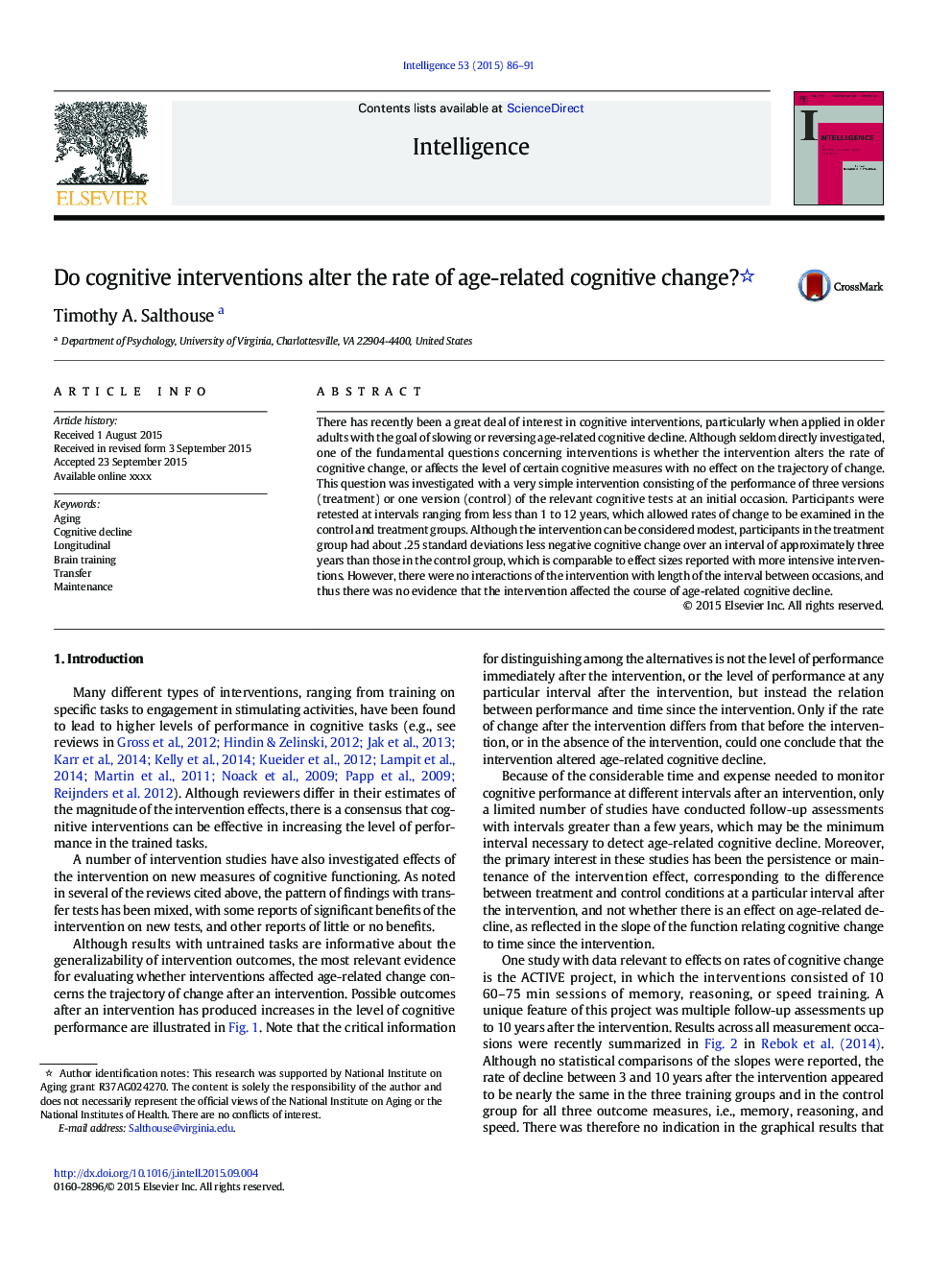| Article ID | Journal | Published Year | Pages | File Type |
|---|---|---|---|---|
| 7293591 | Intelligence | 2015 | 6 Pages |
Abstract
There has recently been a great deal of interest in cognitive interventions, particularly when applied in older adults with the goal of slowing or reversing age-related cognitive decline. Although seldom directly investigated, one of the fundamental questions concerning interventions is whether the intervention alters the rate of cognitive change, or affects the level of certain cognitive measures with no effect on the trajectory of change. This question was investigated with a very simple intervention consisting of the performance of three versions (treatment) or one version (control) of the relevant cognitive tests at an initial occasion. Participants were retested at intervals ranging from less than 1 to 12Â years, which allowed rates of change to be examined in the control and treatment groups. Although the intervention can be considered modest, participants in the treatment group had about .25 standard deviations less negative cognitive change over an interval of approximately three years than those in the control group, which is comparable to effect sizes reported with more intensive interventions. However, there were no interactions of the intervention with length of the interval between occasions, and thus there was no evidence that the intervention affected the course of age-related cognitive decline.
Related Topics
Social Sciences and Humanities
Psychology
Experimental and Cognitive Psychology
Authors
Timothy A. Salthouse,
